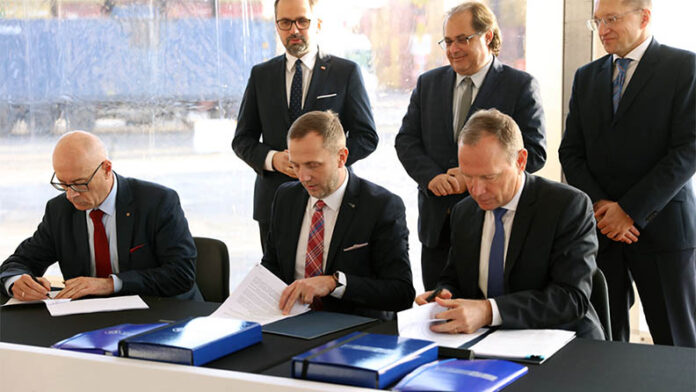
-
International Container Terminal Services Inc will continue to manage and operate the Baltic Container Terminal in Gdynia, Poland until 2053
-
ICTSI signed a new 30-year lease for BCT with the Port Authority of Gdynia SA on December 19, 2022
-
ICTSI has been improving the terminal since 2003, investing more than US$100 million in its facilities, personnel and general service capability
International Container Terminal Services Inc signed on December 19 a 30-year lease extension with the Port Authority of Gdynia SA in Poland.
In a statement, ICTSI said the new lease extends until 2053 the tenure of Baltic Container Terminal under the management and operation of Philippine-headquartered ICTSI, the 100% owner of BCT.
ICTSI has been active in the Port of Gdynia since 2003, investing more than US$100 million in the terminal’s facilities, personnel and general service capability, the Enrique Razon-owned global port developer and operator said.
Future investments are expected to easily match and exceed $100 million and will initially complement ongoing work by the Port Authority of Gdynia SA to upgrade the port infrastructure to facilitate the access and handling of larger vessels, ICTSI said.
The company said Stage 1 works have been completed, enabling BCT to handle vessels with an overall length of up to 366 meters. Subsequent developments will provide access for and the handling of much larger vessels of up to 400 meters length overall.
BCT represents an important component in Poland’s port infrastructure – it functions as a key maritime gateway for feeder services, relaying cargo to/from the main Northern European hubs. The terminal also serves as the main port of call for direct services – the Scandinavia/Baltic, the USA and the North West Continent, and the India Pakistan Services, ICTSI said.
Development work promises to enable BCT to consolidate and expand handling of both categories of service to the direct benefit of exporters and importers. Equally, it will facilitate the handling of special cargoes such as advanced military equipment.
“BCT has considerable expertise in this area, meeting stringent security requirements and, as such, enjoys the trust of the Polish army and Poland’s NATO allies,” BCT chief executive Wojciech Szymulewicz said.
Recent years have also seen BCT make its mark in the handling of wind turbine components destined for use in onshore wind farms. It further expects to deploy this expertise in conjunction with offshore wind farms that are planned for development over the short to medium term.
“We are pleased to extend our long and positive relationship with the Port of Gdynia,” said Hans-Ole Madsen, ICTSI senior vice president and regional head of the company’s Europe, Middle East and Africa (EMEA) operations.
“We look forward to playing our part in the next growth phase foreseen for the port and to rolling out new investments in a sustainable way that will meet the latest client requirements, build the terminal’s strategic attributes and maximize positive economic impact across the board, for BCT, the port and city as a whole.”
The emphasis on sustainability at BCT will further reflect on ongoing efforts to move cargo into and out of the terminal via rail, not just to national destinations but beyond Poland’s borders, ICTSI said.
BCT’s market reach via rail includes all major destinations in Poland and extends along the increasingly important trans-European Baltic–Adriatic Corridor (Corridor VI). This runs from Gdynia via Upper Silesia in Southern Poland, Vienna and Bratislava and the Eastern Alpine region right through to Northern Italy, serving diverse industrialized centers en route.
ICTSI said BCT processes about 250 intermodal trains operated monthly by 13 intermodal operators. Container cargo moved by rail accounts for 30% of annual throughput.
BCT is a member of the EU-backed COMODALCE project, which is designed to take intermodal rail operations to a higher level, ICTSI said.




